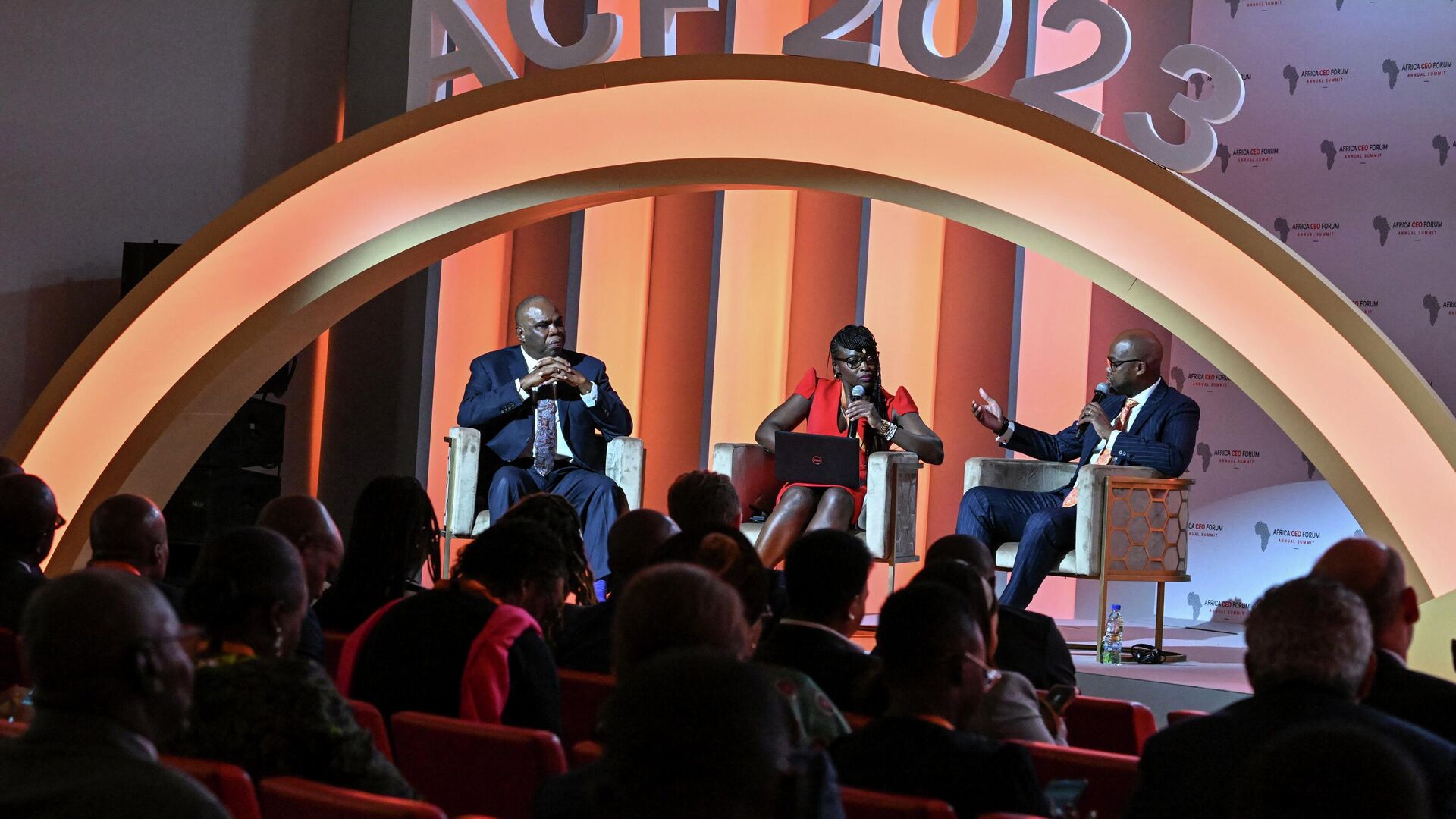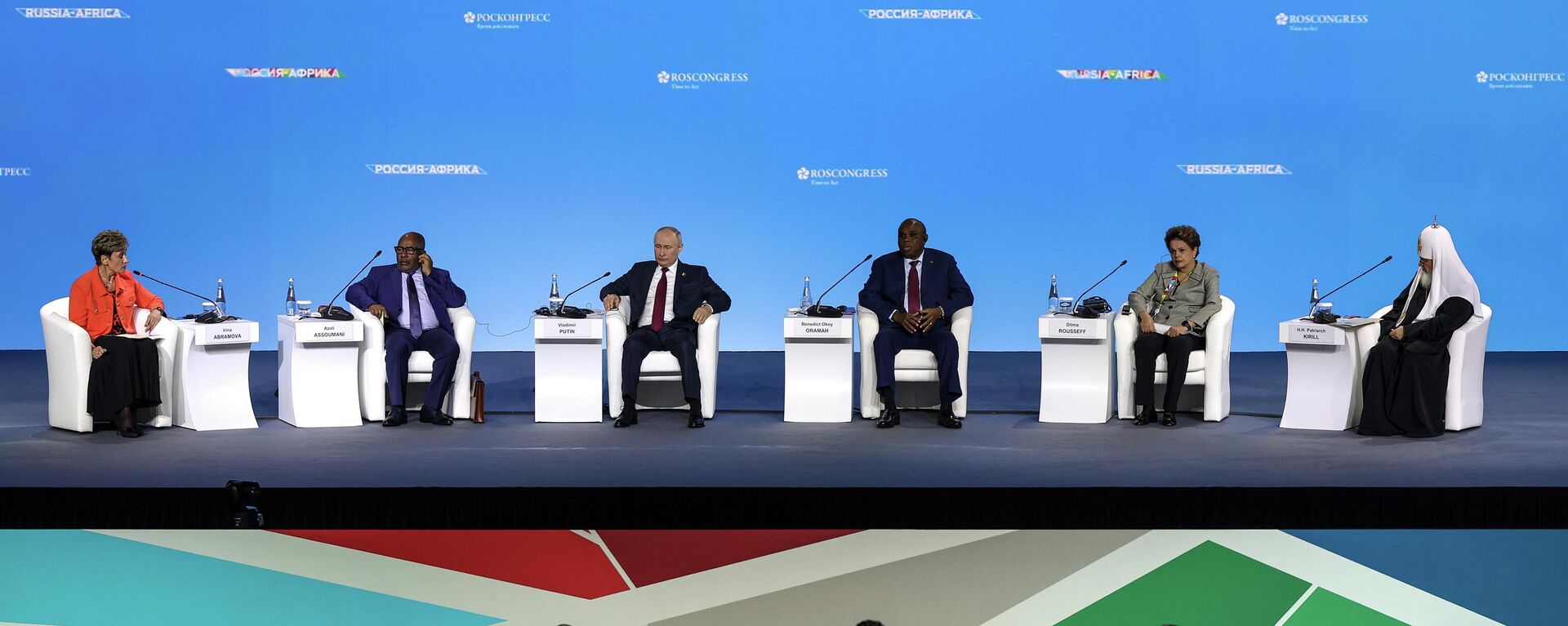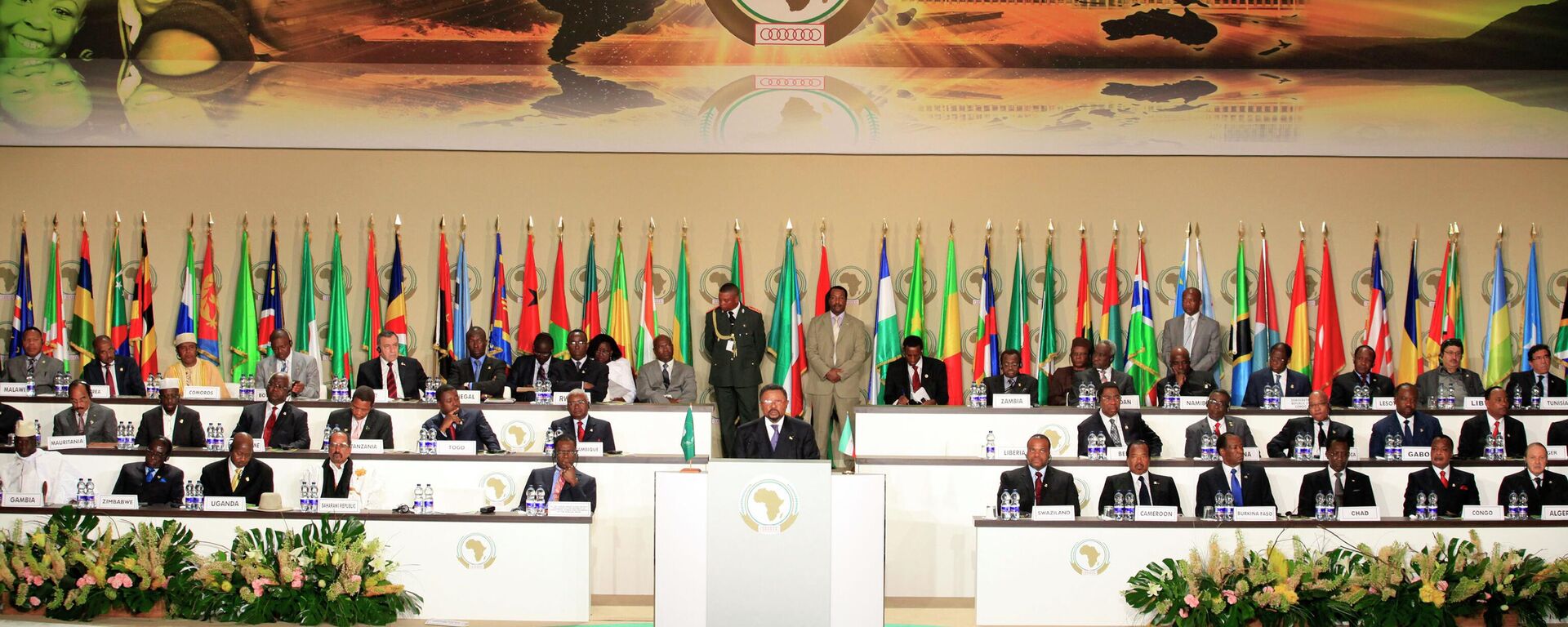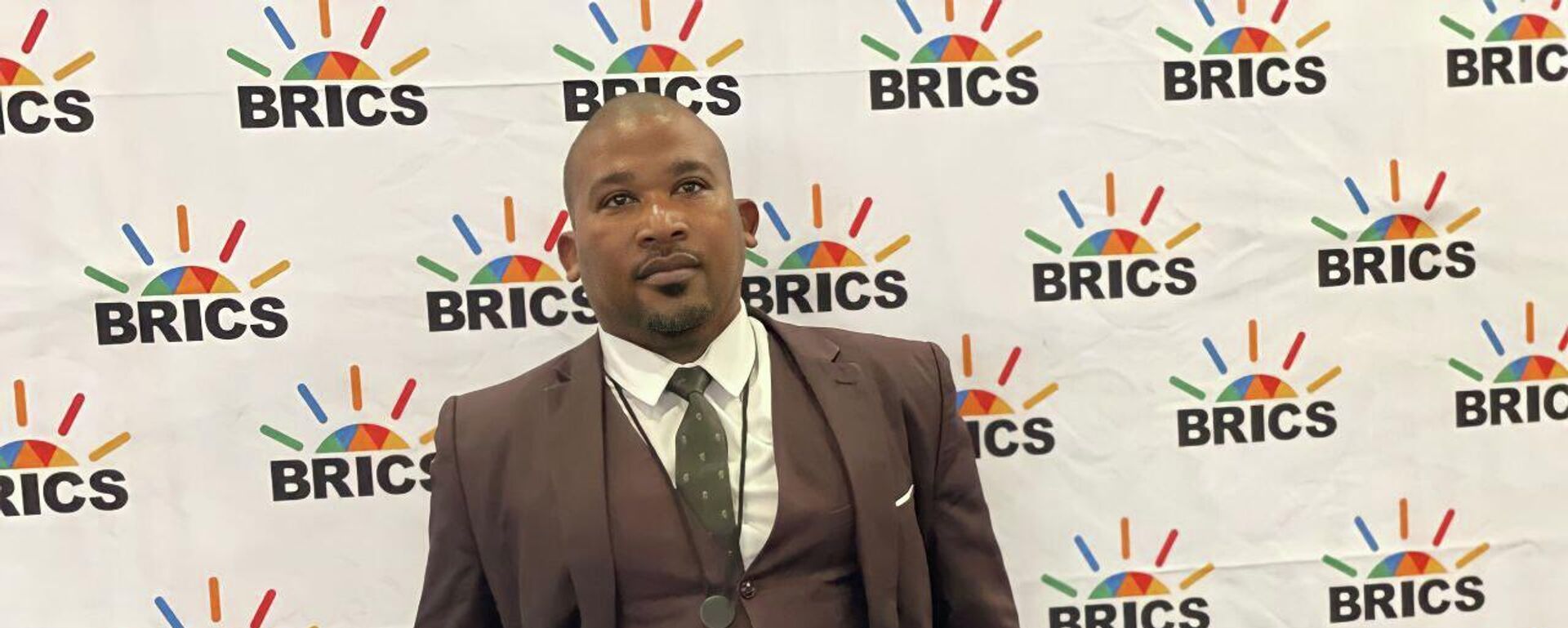Economist Talks Advantages of African Continental Free Trade Area Amid 'Rigged' Global Economy
16:55 23.08.2023 (Updated: 17:44 23.08.2023)

© AFP 2024 ISSOUF SANOGO
Subscribe
Longread
Sputnik Africa sat down with Prof. Ronney Ncwadi, Director of the School of Economics, Development and Tourism at Nelson Mandela University. The conversation focused on the African Continental Free Trade Area (AfCFTA) and its potential to boost intra-African trade.
The African Continental Free Trade Area aims to remove trade barriers across the continent and put in place mechanisms to boost intra-African trade, Prof. Ronney Ncwadi, Full Professor and Director of the School of Economics, Development and Tourism at Nelson Mandela University, told Sputnik Africa.
According to the South African academic, by eliminating tariffs and streamlining exchange rates, the AfCFTA aims to facilitate the seamless movement of goods within Africa. He stressed the need to improve trade efficiency and enhance intra-African cooperation, as African countries have traditionally been overly dependent on trade with external partners.
"We've been focusing on trading with countries outside Africa. And in the process of time, Africa finds itself trapped in a situation where they are producing primary products which go to developed countries," Ncwadi said.
The professor explained that Africa's historical focus on exporting primary products to developed nations has led to vulnerabilities in demand, as even with global economic growth, the demand for African exports remains stagnant.
Ncwadi stressed the importance of adopting an inward-looking strategy and fostering trade among African nations to boost continental incomes. According to him, small and medium enterprises (SMEs) play a crucial role in this process, as their active participation in cross-border trade will bolster economic growth and inclusivity.
"Economy grows faster through stimulating the small business sector," Prof. Ncwadi said. "Then, of course, the advantage here would be the small business sector participating fully in the issues of trade beyond the borders of each country and across Africa, within the content itself."
External Manipulation
Discussing the risk of political manipulation from external powers, Prof Ncwadi underscored the need for Africa to prioritize strengthening the AfCFTA, which is the largest free trade agreement since the creation of the World Trade Organization. By fostering intra-African trade, the continent can reduce its dependence on external actors and enhance its negotiation power.
"If you depend on the developed countries, the West or Europe or Asia, we need to look into how can we, as Africa, begin to stimulate trade within Africa itself. How do we amplify negotiation power with ourselves, you know, in terms of trade, rather than depending on the external powers outside Africa," the professor told Sputnik Africa.
The academic emphasized the importance of sharing strengths within Africa and forging a united front to protect against attempts to impose external interests.
"It is about sharing our strengths within Africa and making sure that we are even more united and drive towards the same goal, which fosters a bond that would fortify us against external attempts to impose their interests on Africa," he said.
According to him, African nations need "a robust African trade network that will diminish the need for external aid and support" and cultivate a deeper partnership. Ncwadi added, "This should translate to steadfast political unity in the face of external manipulation."
Boosting intra-African trade would also "empower local industries" and value chains by selling more with each other.
"That will then help us not to be manipulated by the external Western powers as to what we need to do. So this is more so now is needed than any other time in the history of Africa," Prof. Ncwadi said.
Africa's Growing Abilities
Commenting on the recent concerns raised by President Yoweri Museveni of Uganda, who had expressed frustration with the global economic system and the exploitation of Africa's raw materials by European countries, Prof. Ncwadi emphasized the historical imbalances and the impact they continue to have.
Ncwadi pointed out that the legacy of colonization still influences African trade relationships. European powers took advantage of Africa's resources without providing fair compensation or benefits to the Africans.
"The global economic machine affects Africa's growth," the South African economist said. "The European powers took so much of Africa's land, natural resources that belong to people here in Africa. And they didn't get any fair compensation or benefits to the locals."
The professor highlighted the consequences of Africa's heavy reliance on exporting raw materials. He said that Africa ends up missing out on developing its own skills and technologies, hindering its ability to participate fully in the global economy.
Prof. Ncwadi stressed that the advanced economies already possess the necessary technological skills and established markets, giving them a significant advantage. This reality keeps Africa trapped in a state of dependency, subjecting it to the whims of global market forces.
"The global economy game oftentimes is rigged, favoring the rich over the rest. Certain agreements are easy to come by, especially when the skills are so uneven."
However, Prof. Ncwadi expressed optimism regarding the AfCFTA, which he described as "a ray of light to us in Africa". He believes that the agreement will help change the trading scenario and improve Africa's future as a whole.
Multipolarity & Equal Opportunities
When discussing steps that need to be taken to ensure a multipolar global architecture, where all parties have equal opportunities to trade, Prof. Ncwadi highlighted the potential role BRICS can play.
He acknowledged that the bloc holds promise in changing the traditional trade game in Africa. The professor explained that investments, especially from BRICS countries like China, have been flowing into Africa, focusing on infrastructure development.
"The sharing of knowledge, transfer of skills from our BRICS partners, teaching skills to Africa. We have got to become better at negotiating deals and setting rules that work for Africa, because I think BRICS is very much acquainted with the challenges facing the developing world, more than the West," he said.
Prof. Ncwadi anticipates that BRICS, which brings together five of the world's leading emerging economies, namely, Brazil, Russia, India, China and South Africa, can foster investments and boost trade within Africa, bringing about positive change.
"BRICS can play a major role in fostering investments and also helping to boost this trade within Africa," the economist concluded. "You know, it would bring some change, but we just need to make sure that our involvement with BRICS can work for the better good of the African continent."





